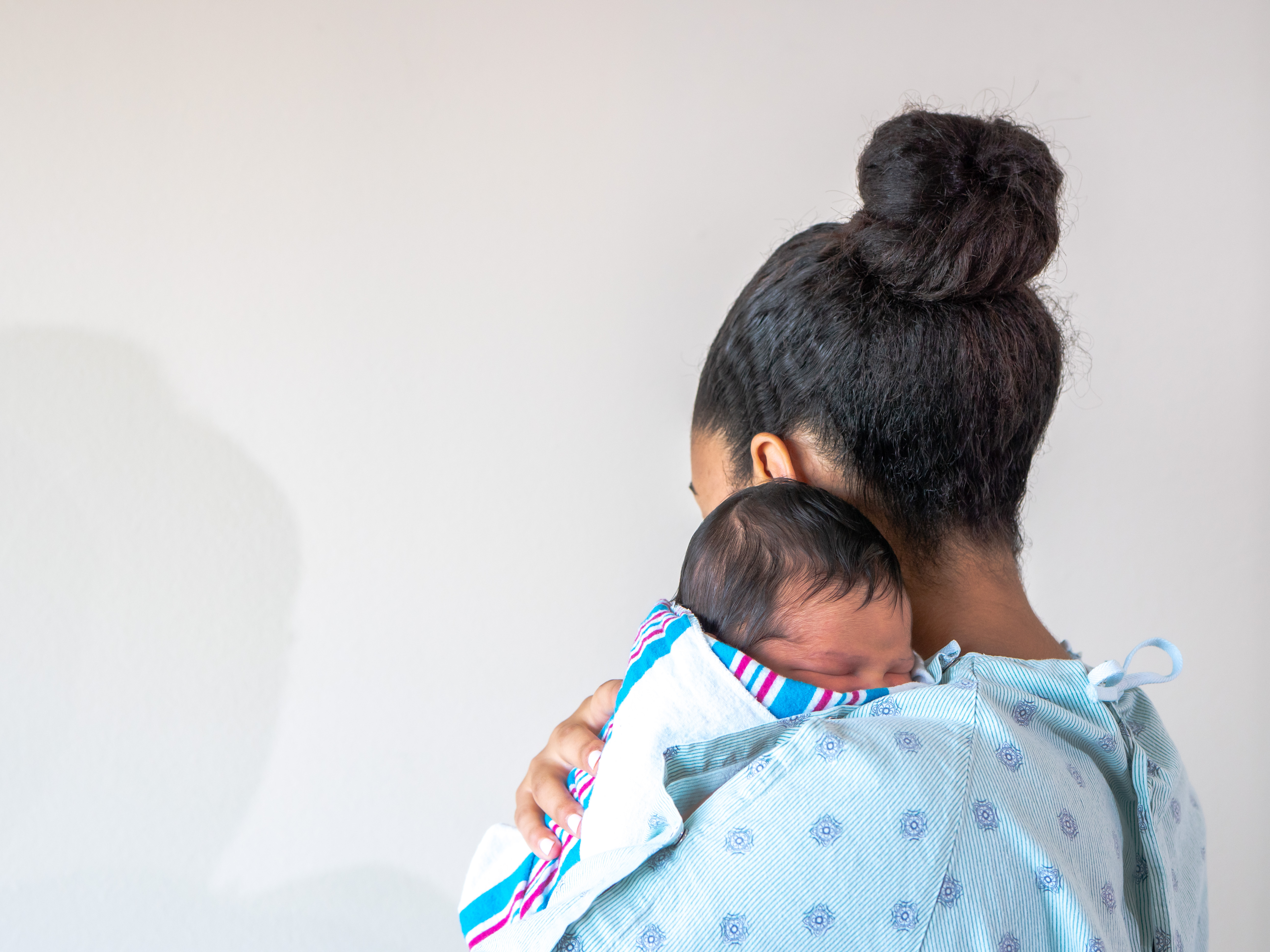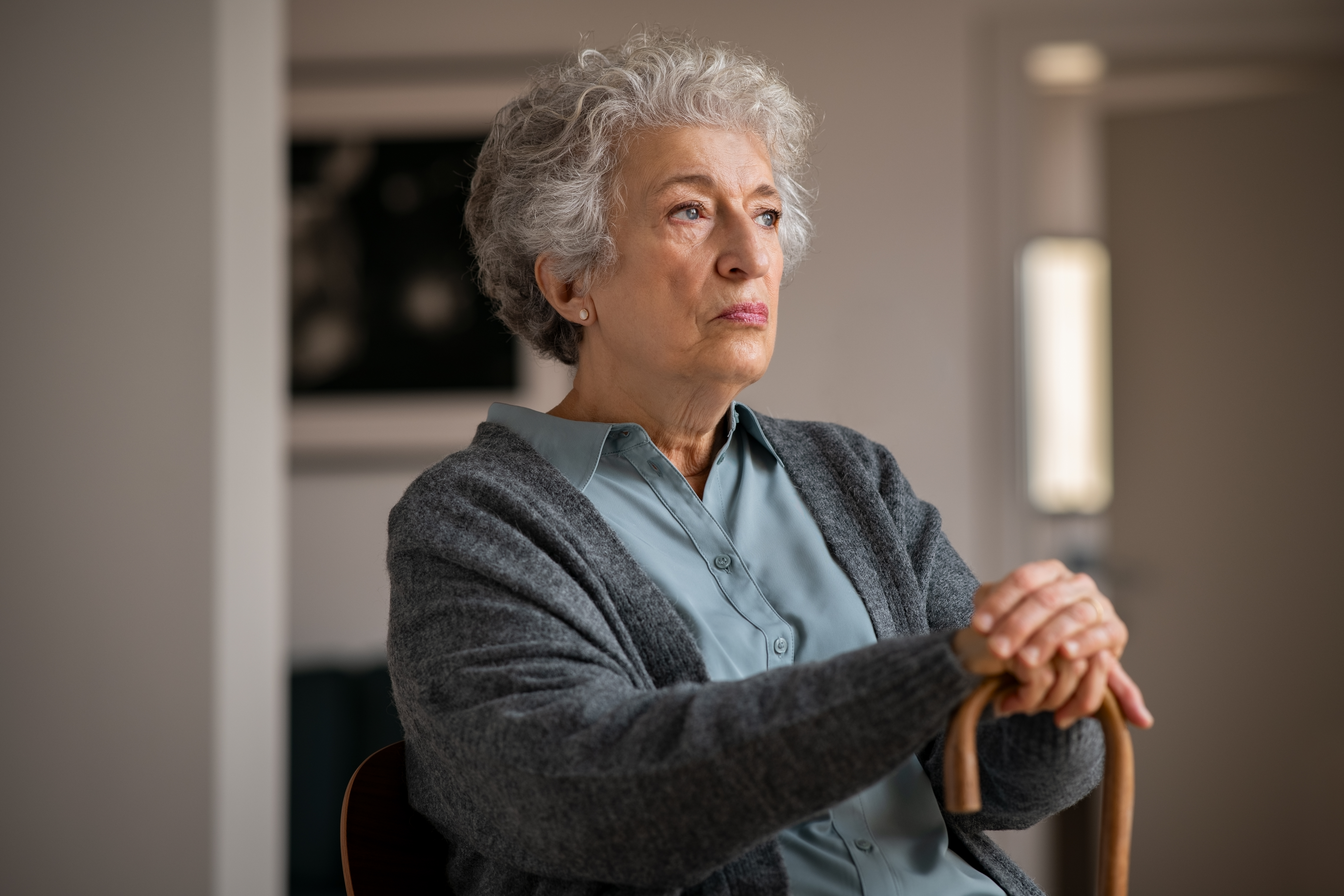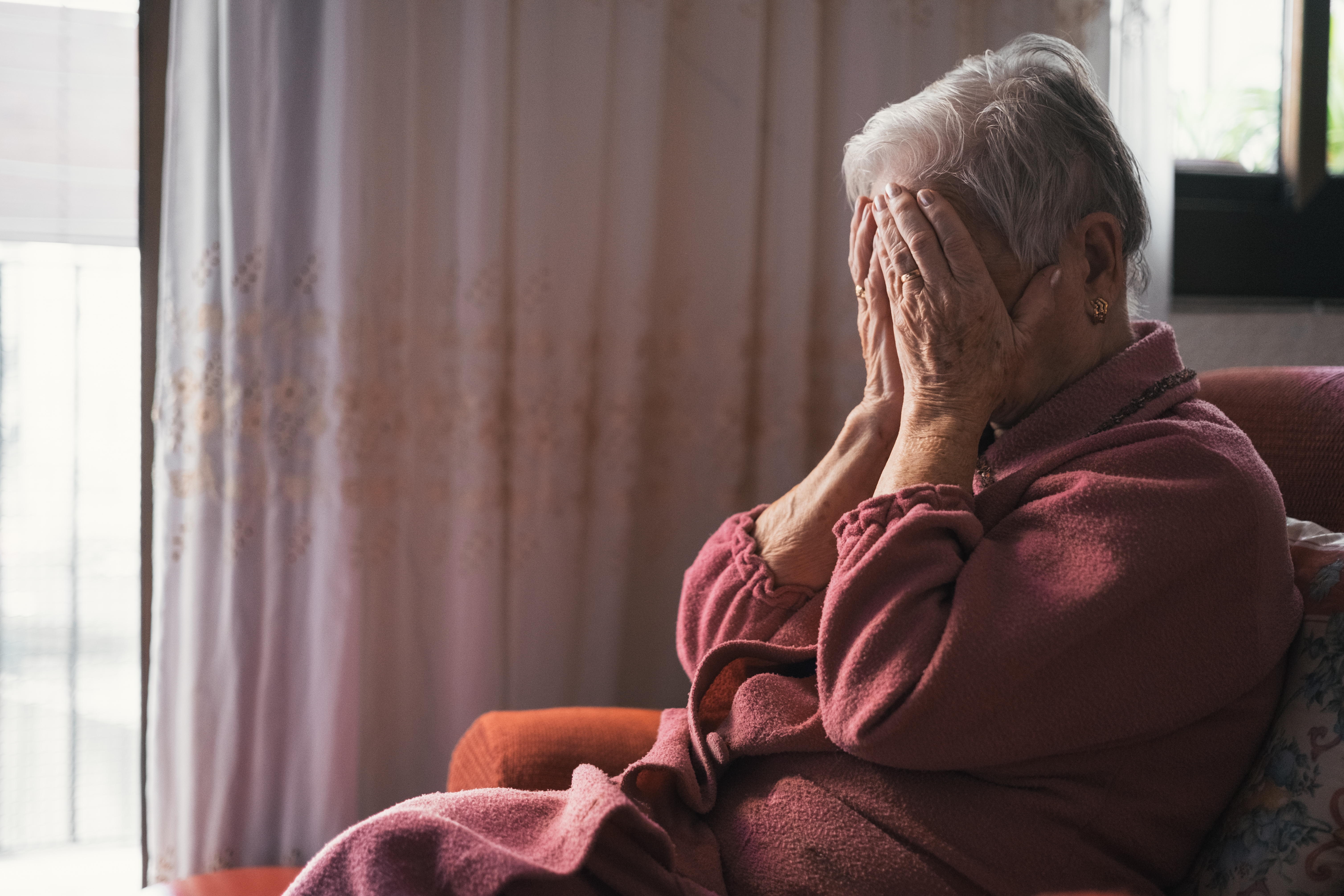Following the death of their father, a woman of two denied her racist grandma the opportunity to see her twin daughters. She felt she made the right decision, even though her family felt she was a little too severe with the mourning woman.
On Reddit, a woman talked about how she dealt with her children’s racist grandma, co-parenting, and her unexpected path into parenthood.

A pregnant woman | Source: Shutterstock
The Reddit user revealed that she fell pregnant from a one-night stand when she was 27. She and the father of her twin daughters, whom she named Robert, agreed not to pursue a relationship but rather develop a healthy co-parenting dynamic that worked for them.

A pregnant woman in the hospital | Source: Shutterstock
The day the woman gave birth to her twins, Robert and his mother visited her at the hospital. Without even congratulating the new mother, the grandmother asked her son to get several paternity tests and made racist remarks about the then 27-year-old.

A new mom in the hospital with her newborn baby | Source: Shutterstock
The first time she encountered the grandmother of her children, she was met with racism, but she did not know that her children would experience the same treatment from her.
The Co-Parenting Journey
According to the mother of two, Robert worked a lot and lived in another state, so he only had the girls on major holidays or for the summer. During this time, he would let the twins visit their grandmother.

An elderly woman looking angry | Source: Shutterstock
The woman knew that Robert’s mother was his only family, so she did not mind the girls being with her. However, when the twins were about five years old, Robert and his mother fought a lot and had a fallout.
It turned out that the mother and son drifted apart because the grandmother would say racist and offensive things to her grandchildren, especially when they misbehaved. Therefore, the father did not think that was a healthy environment for his children to grow up in.

A father and his daughter | Source: Shutterstock
Fortunately, the mother of his children and her family were supportive. They invited Robert to spend the holidays with them when they heard about the fallout. He attended all the family gatherings and would stay at a hotel or in the woman’s guest bedroom.
However, things started to go south for Robert. He found out he had a terminal illness that he could not survive, regardless of how strong the treatment was. The diagnosis made him regret not spending enough time with his daughters.

A mother smiling with her daughters | Source: Shutterstock
He quit his job, moved closer to his daughters, and asked for equal custody. The mother of the twins empathized with him and offered him to stay in her guest room and live with the girls for the remaining time he had.

A sad elderly woman | Source: Shutterstock
Robert took up the offer, but the woman only had one condition. She would agree for the twins to spend time with their grandmother, but she was not allowed in her house. The father of two respected the boundaries and never brought his mother over. Robert eventually died, and the loss was hard on both the mother and her twins.
Life After Robert’s Death
The mother of two was shocked to have the grandmother knock at her door and ask to see her daughters. She laughed in her face and told her no.
The grandmother pleaded with her, saying the girls were the only piece of Robert left. To which she said, “Her only connection to them was through Robert and Robert only. I have not and will not help her see my girls.”
She even reminded her that Robert was the one to forbid her from seeing the girls, so the woman clarified that nothing would change even after his death.
Her family told her she was a bit too harsh not to allow the grieving grandmother to see her grandkids, but the woman did not believe she was wrong, especially after how she treated her and her daughters.
Many commenters also agreed that it was unsafe for her daughters to be around someone who racially discriminated against them. In fact, it was severely worrying for most that the grandmother was not only racist toward the mother but her own grandchildren too.
Therefore, readers thought it would be best for the girls to decide whether they wanted a relationship with her when they were 18. But in the meantime, the readers believed “She has reaped what she sowed”

